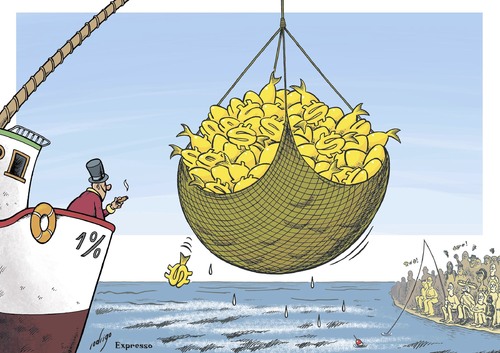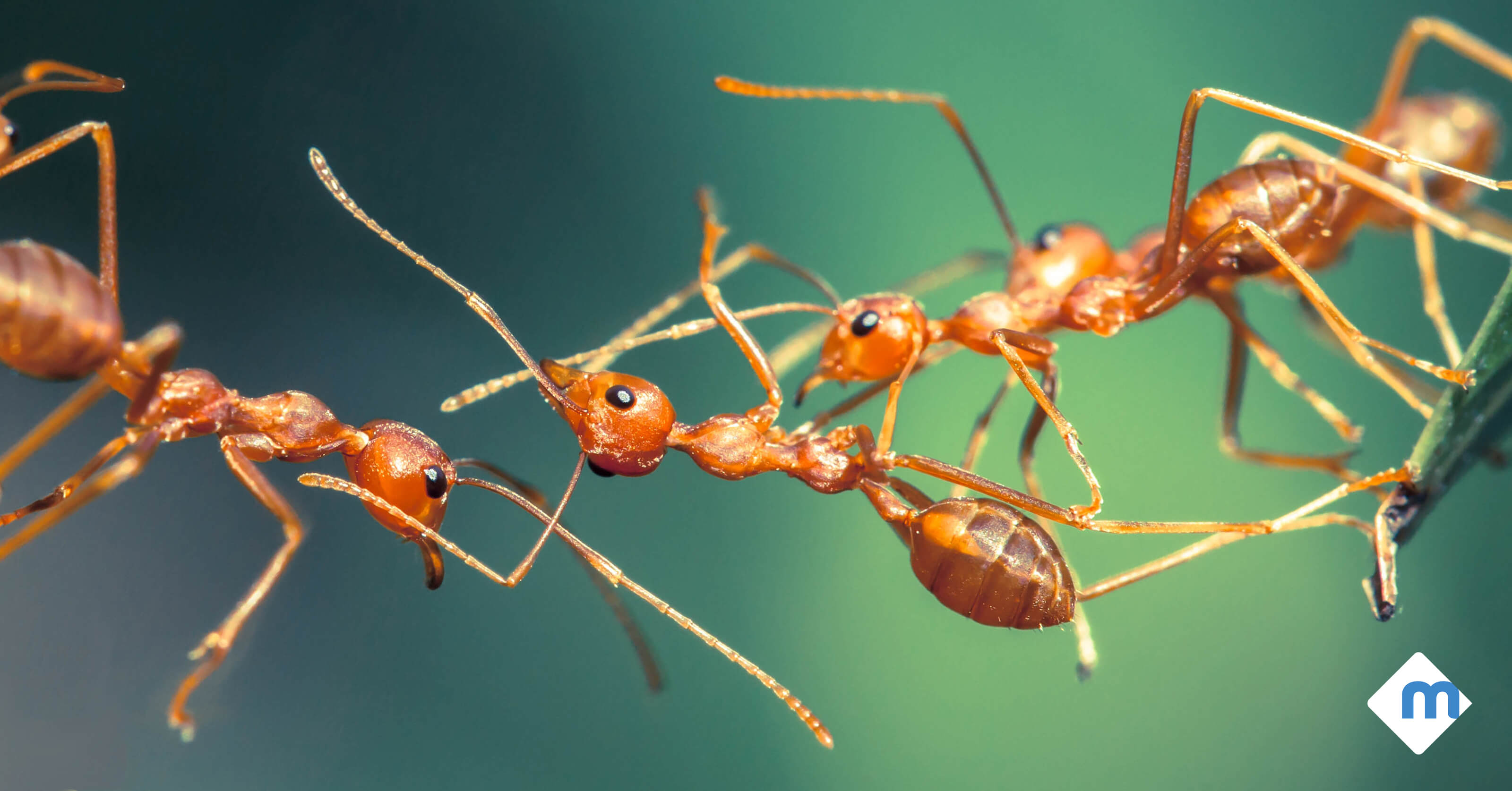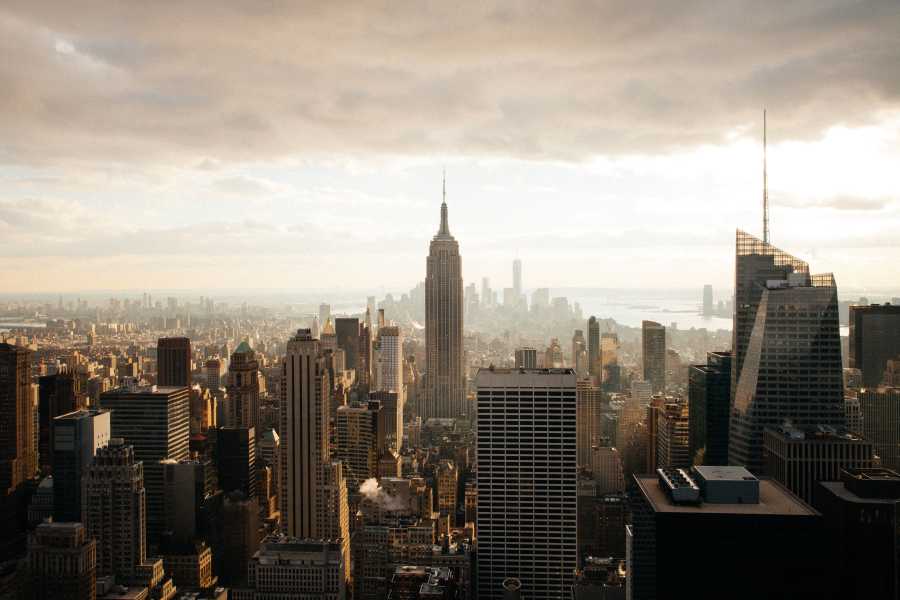There is a conjecture in philosophy that states that the civilized state of man is full of suffering and inequality and that the state of nature of man is one in which man only has desires of self-preservation and perfectibility, and that somewhere in between the natural state and the civilized state there lies a pastoral and sedentary state in which humanity’s peace is at its strongest and suffering is at a minimum. Therefore, society is bad because the rich man and the poor man are born, and to efface that humanity must go back to a simpler state where we are natural and equal. In other words, inequality is unnatural. Such is the the reasoning of Jean Jacques Rousseau.
 This reasoning, however, is only half true. Yes it is true that society creates social inequalities, but inequality is not dependent on society. In other words, in the state of nature, there is natural inequality as well. No two people occupy the same life and many factors contribute to the ability and actuality of a person either being above or below another person. Rousseau also says that man naturally wants to preserve himself, expand the population, and has an idiosyncratic perception and knowledge of the world that is compared to none. From the basics, humans developed language, ideas, comparisons, self-consciousness, and reflection (among others). With these abilities together, man joined together in tribes, and then societies, to collaborate and build a social structure. By nature, we are social, and consequently society was natural because there was a combination of intelligence and interactions to tie it together. Therefore, social inequality is not unnatural as is assumed by Rousseau because as societies form, they become more complex like the human mind, and evidently, where there is space for goodness and equality, there is also room for badness and inequality. Nature is never always kind nor cruel, but both, and we as humans have an innate correlation to that. Rousseau draws a distinction between the two sides, but we must understand that equality and inequality are inevitable and
This reasoning, however, is only half true. Yes it is true that society creates social inequalities, but inequality is not dependent on society. In other words, in the state of nature, there is natural inequality as well. No two people occupy the same life and many factors contribute to the ability and actuality of a person either being above or below another person. Rousseau also says that man naturally wants to preserve himself, expand the population, and has an idiosyncratic perception and knowledge of the world that is compared to none. From the basics, humans developed language, ideas, comparisons, self-consciousness, and reflection (among others). With these abilities together, man joined together in tribes, and then societies, to collaborate and build a social structure. By nature, we are social, and consequently society was natural because there was a combination of intelligence and interactions to tie it together. Therefore, social inequality is not unnatural as is assumed by Rousseau because as societies form, they become more complex like the human mind, and evidently, where there is space for goodness and equality, there is also room for badness and inequality. Nature is never always kind nor cruel, but both, and we as humans have an innate correlation to that. Rousseau draws a distinction between the two sides, but we must understand that equality and inequality are inevitable and coexist as part of one. Yet, there is an element of human nature that makes itself unique. We want to break free from this polarity. There is the desire to fight for equality and claim inequality as the cause for the suffering of many dingy lives. We, above all, care heavily on the problem of inequality because we have great expectations. We have beliefs and hopes and are nothing short of unique. However, I must illuminate and divert to a specific example to show how, however unnatural things may seem, so to say however much they deviate from Rousseau’s concept of naturality and equality, society and inequality are of the most natural essence. How so? We must look at the little things, because they help paint the bigger picture.
coexist as part of one. Yet, there is an element of human nature that makes itself unique. We want to break free from this polarity. There is the desire to fight for equality and claim inequality as the cause for the suffering of many dingy lives. We, above all, care heavily on the problem of inequality because we have great expectations. We have beliefs and hopes and are nothing short of unique. However, I must illuminate and divert to a specific example to show how, however unnatural things may seem, so to say however much they deviate from Rousseau’s concept of naturality and equality, society and inequality are of the most natural essence. How so? We must look at the little things, because they help paint the bigger picture.
I talk about Formicidae, or what are known as ants. However minuscule the species may fare to humans, their existence is inherently beneficial in comprehending the nature of life and of inequality.

An ant colony refers to “the typical ant nest—a vertical tunnel [6-25 feet deep] with horizontal chambers” along with its eusocial inhabitants and functions (Humphreys, McClintock). The ant colony resembles a human society in many aspects including hierarchy, number structure, and responsibilities for survival. At the top of the hierarchy there is a queen or egg-laying ant that lays thousands of eggs either sexually or asexually. Typically the former poses as the primary process for most ant species, where drones are involved. According to the extermination specialists at Terminix, “drones are male ants whose only function is to mate with the queen so she can lay her eggs” (Terminix). Besides these ants, which are almost always inside the ant nest, there are alates, or winged reproductive ants, that partake in nuptial flights to reproduce with ants of other colonies. At the bottom of the social order is the most abundant type of ant which is the worker ant. All worker ants are female and are born into this position. — To elaborate, ant larvae are fed different amounts of food and some obtain better nutrition than others. Of those that survive, the strongest are usually the ants that will have the ability to lay eggs and become queens or alates, while the rest turn out to be worker ants. Therefore, the inequality of ants is inherent through birth and determined by developmental factors early on. Yet, although there is a fundamental hierarchy in an ant colony, the ants coexist in a remarkable fashion. The queen-ant does not delegate duties to the other ants, but strangely, the ants choose their tasks out of preference for the sound functioning of the colony. In the words of myrmecologist Walter Tschinkel “The colony is a kind of creature—a superorganism” (Humphreys, McClintock).
And what have we gained from this knowledge? For one, we must understand that the inequality in society is a natural occurrence, and it is not a stretch to say that humans face inequality from the start just as ants do. Another is that there is a steep contrast between the way ants and humans think. Ants accept their roles in society and place their value of life on the betterment of society. Intuitively we can say humans profess that same value. However, humans have made the distinction between equality and inequality, and in reaching solely for the positive side known as equality, we have raised our expectations, our pity accentuated, to achieve something utopic but unnatural. In this case, Rousseau wants to turn back time and contain human progression to pre-societal dominance, but wrongly claims that this is the cause for inequality. Inequality was always there, and the only thing that has changed to make us feel this way is our perception, reflection, and our expectation. Therefore, we feel a pity greater than that which we have felt in the past, and we have given the idea of inequality an unnatural meaning that errs from its reality. Perhaps the greatest gift humans have developed is the desire for good, truly, but we must understand (without the care for redundancy), that inequality is natural, and that ant colonies and human societies are not much different, except for the fact that ants have an unknowing acceptance of their lives while we have giant expectations only meant for our enlightened minds.
Works Cited
“Ant Colonies and Social Structure | Terminix.” Termite Control & Home Termite Inspections, www.terminix.com/blog/education/what-is-an-ant-colony. Accessed 15 Nov. 2017.
Google Images. Accessed 16 Nov. 2017.
Humphreys, Brent, and Jack McClintock. “The Secret Life of Ants.” Discover Magazine, 7 Nov. 2003, discovermagazine.com/2003/nov/the-secret-life-of-ants. Accessed 15 Nov. 2017.
Rousseau, Jean-Jacques, and Donald A. Cress. The Basic Political Writings. Hackett, 2012.

Hi Chapman,
I really enjoyed this blog post as well. You consistently have very interesting topics for discussion that I never would’ve thought of, and this is no exception. The beginning of your post was a very valuable recap of Rousseauian philosophy and you did a great job of summarizing and paraphrasing the information that we’ve learned in a clear and concise manner that would help us as a refresher but also anyone who doesn’t have the same background knowledge that we do. Your comparison with the ants was incredibly intriguing as well. I wonder if any other animals follow this same ‘social’ structure. When you wrote that, “ants accept their roles in society and place their value of life on the betterment of society. Intuitively we can say humans profess that same value. However, humans have made the distinction between equality and inequality, and in reaching solely for the positive side known as equality, we have raised our expectations, our pity accentuated, to achieve something utopic but unnatural”, it was an eye opening moment because you’re very right in saying that we as a society love to compliment ourselves and human nature as a whole, but that serves to even more show how we do not meet the ideal that we think you have. You have an immense consciousness of society and that lends itself well to your work. The visuals in this blog post weren’t quite as valuable as they have been in past posts, but we’re required to be multimodal and so I completely understand why you included them (the pictures). However, the video was a great inclusion.
Nicki
LikeLike
I understand where you are coming from in terms of your concepts stating that “inequality is natural” and it is being challenged because humans have become enlightened and aware. Ants may have a natural hierarchy, but humans do not. If anything, your ideas are comparable to the arguments by William Walker and others that Lazo brought up in lecture, as a “natural” form of inequality among humans suggests a biological cause, especially since your comparison of human hierarchy involves explaining the relationship between insects whose biological function decides their place. I disagree that inequality in humans is in anyway natural. Please consider the millennium of oppression and marginalization that led to the current inequalities. African Americans were not born naturally into the inequality in our society, they were chained and dragged across the sea into it. Native Americans were not naturally unequal when they cultivated this land, they were massacred and manipulated into the reservations that keep them stuck at the bottom of our social hierarchy. Woman, people of color, members of the LGBTQ+ community, and a variety of religious groups throughout history and in modern society have faced being at the bottom of this hierarchy. Does that mean racism, sexism, homophobia, transphobia, and xenophobia are all natural, considering that they are a part of the human hierarchy?
LikeLike
Chapman –
I appreciate your metaphor between human society and ant colonies, but I would argue that there are some fundamental differences that make it difficult to draw real parallels between these two.
Human society does not function as a hive-mind, and we are not born into roles which we are forced to play. Even someone born into a household without means isn’t forced to follow in his parents’ footsteps, A person without education or opportunity is still not forced into a single role like a worker ant – he/she could become any sort of unskilled laborer, or could even strive to educate themselves and eventually become a skilled worker or white-collar employee.
While I don’t agree with your ideas, this was still clearly a thought-out post that connects to the ideas of Rousseau’s philosophy.
– Colin
LikeLike